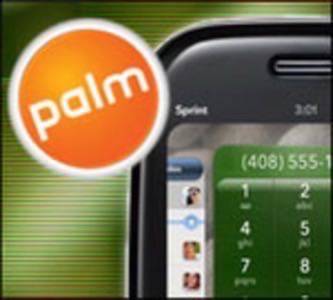When the Palm Pre debuted, one of its most useful features was its ability to sync with Apple’s iTunes software. Unfortunately, how it went about doing this was a little bit underhanded: it pretended to be an iPhone. The most recent version of the hack – yes, there were several – was made possible by Palm’s use of Apple’s USB hardware vendor code provided by the USB Implementers Forum, an industry standards group. The Pre simply used Apple’s code so that iTunes would see the Pre as an Apple device. Apple of course, was not happy, and purposefully broke this functionality in subsequent iTunes software updates. Palm responded by complaining to the Forum, but the group took Apple’s side.

Now, finally, the Apple/Palm war seems to have ended. With the latest update to Palm Pre’s webOS software, the company has come up with a new tactic altogether: forget about iTunes, use Amazon instead.
Palm vs. Apple
The back-and-forth between Apple and Palm was getting ugly. A cat and mouse game transpired involving hacks, crippling updates from Apple, and then re-hacks from Palm which did nothing for either company’s image. Some felt that Apple had every right to protect their software from being used with other devices – after all, if something went wrong with Pre syncing, consumers could easily blame Apple’s software for the troubles. They may even call in for support, not understanding that Apple wouldn’t be able to handle issues arising from the use of a competitor’s hardware.
Others, however, felt that Apple should open up. With their dominance over the entire digital media player industry, keeping their proprietary software a closed system was a way to make sure that no up-and-comers could ever have a shot at becoming a popular alternative to the iPod or iPhone. Palm, of course, felt this way, too. They complained to the USB-IF saying that consumers should have a right to decide how they use the media they purchase. That is, if they bought content from iTunes, they should be able to sync it to the Pre.
The USB-IF did not agree, though. They sent letters to both companies explaining that Palm’s use of Apple’s USB vendor code actually violated the group’s rules and would need to end. Clearly, Palm lost this round, too – but don’t count them out just yet.
Palm Releases webOS 1.2
Yesterday, Palm released an update of the Pre software, webOS. While most of the reporting surrounding the new OS involved the important update which brings paid applications to the Pre’s App Catalog, another under-reported feature is actually just as (if not more) important. The Pre now lets you download over-the-air from Amazon’s MP3 Store.
According to the Official Palm Blog, the Amazon integration now works over both WAN or Wi-Fi, meaning that you don’t need to be hooked up to a PC via USB to purchase music on your Pre. You can do so directly from the device, just like Apple iPod Touch and iPhone users can do through Apple’s mobile iTunes Store. Although the iTunes experience overall may have been the preferable option for many users, Amazon at least provides a viable alternative for Pre owners. Amazon’s online catalog may still be a few million short of that of Apple’s, but often their prices are much more affordable thanks to daily deals and albums that start at $4.99.
While Palm hasn’t officially responded to the USB-IF’s letter – despite being told they had to do so within a week – it seems that they have, without actually saying so, made their decision. The latest update’s release notes do not mention iTunes syncing, and, as many expected, it has not been re-enabled.
It looks like Palm Pre has given up the fight for good, now betting entirely on Amazon. The company’s original plan to sync with iTunes was a calculated risk and one which now leaves consumers holding the short end of the stick. How many Pre owners bought the Pre because it synced with iTunes? How many are angry or disappointed because it doesn’t now? It may have been better if Palm never went this route to begin with and worked on making the Amazon integration the key selling point from day one. Of course, hindsight is always 20/20. However, their decision may end up having a major impact on the company’s future, considering they’ve essentially bet the farm on webOS, ending support for devices running both the original Palm OS and Windows Mobile. Will giving up on iTunes impact device sales for the struggling company? Or will extricating themselves from this nasty war with Apple end up being the best thing they could have done?

















